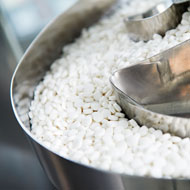Resistance to antimicrobials remains high - report

The report found that antimicrobial resistance levels in Europe continue to vary by geographical region.
Study highlights scale of antibiotic resistance challenge in EU
Bacteria found in animals, human and food continues to show resistance to widely-used antimicrobials, according to a new report.
Published by the European Food Safety Authority (EFSA) and the European Centre for Disease Prevention and Control (ECDC), the report emphasizes that AMR poses a serious threat to public and animal health.
“Antimicrobial resistance is an alarming threat putting human and animal health in danger. We have put substantial efforts to stop its rise, but this is not enough,” commented Vytenis Andriukaitis, EU Commissioner for Health and Food Safety.
“We must be quicker, stronger and act on several fronts. This is why the Commission will launch a new Action Plan this summer that will give a new framework for future coordinated actions to reduce the spread of antimicrobial resistance.”
The report corporates already-published UK veterinary surveillance data from 2015 and compares them with other countries for the first time.
It found that multi-drug resistance in Salmonella bacteria is high across the EU. But experts claim that resistance to critically important antimicrobials used to treat severe cases of human Salmonella infection remains low.
The report also shows that antimicrobial resistance levels in Europe continue to vary by geographical region. Countries in the North and West of Europe - including the UK - had lower resistance levels than those in the South and East.
Welcoming the report, John Fitzgerald of RUMA, the agriculture and food industry alliance said: “This shows that the work being done to reduce, refine and replace antibiotic use is a priority, and very necessary across both human and veterinary medicine.
“We hope that the generally lower levels of resistance found in the UK reflect, in part, the responsible use guidelines for farm animals we have had in place through RUMA for the past 20 years. Despite this, the need for further concerted action is clear.”



 The Veterinary Medicines Directorate (VMD) is inviting applications from veterinary students to attend a one-week extramural studies (EMS) placement in July 2026.
The Veterinary Medicines Directorate (VMD) is inviting applications from veterinary students to attend a one-week extramural studies (EMS) placement in July 2026.